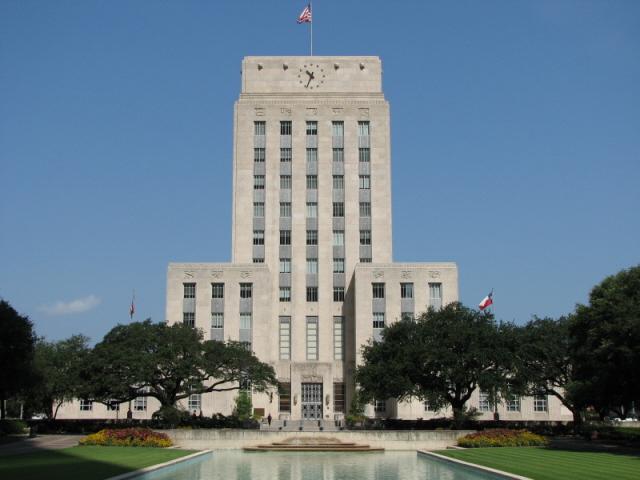In this week’s political briefing from Houston Public Media, dated June 4, 2025, we delve into the significant events influencing both national and regional politics. From critical legislative negotiations in Washington, D.C., to impactful policy decisions affecting the Houston metropolitan area, our report sheds light on the key players and debates steering the political discourse. Our detailed examination offers insights into how these developments resonate across Texas communities and beyond.
Texas Legislative Session Highlights: Steering the State’s Policy Agenda
This week, Texas lawmakers gathered in Austin to engage in robust discussions that reveal shifting priorities within the state’s political arena. Central topics included reforming education funding, expanding healthcare services, and upgrading infrastructure. The debates exposed contrasting perspectives on budget distribution, balancing economic stimulation with protections for at-risk groups. Early indications suggest these sessions may lead to significant policy transformations aimed at addressing urgent statewide challenges.
Noteworthy points from the legislative debates:
- Proposals advocating for an 8% raise in teacher pay faced opposition due to fiscal limitations.
- Medicaid expansion sparked vigorous bipartisan dialogue, reflecting deep divisions.
- Infrastructure bills prioritized enhancing rural broadband connectivity and improving transportation networks.
| Policy Sector | Proposed Measure | Expected Outcome |
|---|---|---|
| Education | 8% Increase in Teacher Salaries | Boost Teacher Retention Rates |
| Healthcare | Medicaid Expansion Initiative | Expand Coverage by 15% |
| Infrastructure | $500 Million Broadband Investment | Enhance Rural Connectivity |
Tackling Economic and Social Challenges: Insights from June Political Sessions
June’s political gatherings brought together influential leaders to confront pressing economic and societal concerns nationwide. The agenda focused on curbing inflation, fostering job creation, and narrowing the growing income disparity impacting millions. Lawmakers debated initiatives designed to increase affordable housing availability, improve healthcare access, and allocate more resources toward education reform.
Highlighted proposals included:
- Targeted tax relief programs aimed at supporting small businesses
- Expansion of workforce development and training to align with evolving labor market needs
- Enhancement of social safety nets to assist vulnerable populations
- Investment in sustainable infrastructure projects to drive economic growth
| Focus Area | Anticipated Impact | Implementation Period |
|---|---|---|
| Affordable Housing Programs | Decrease Homelessness by 15% | 2026–2028 |
| Healthcare Accessibility | Achieve 95% Population Coverage | 2025–2030 |
| Workforce Training | Upskill 2 Million Workers | 2025–2027 |
Grassroots Activism: Transforming Election Campaigns and Voter Engagement
Recently, grassroots organizations have become instrumental in influencing political campaign strategies. Their capacity to galvanize local populations through focused social media outreach, door-to-door canvassing, and advocacy on specific issues has prompted candidates to adjust their messaging and engagement tactics. Political parties increasingly collaborate with these community groups to amplify authentic voices that resonate deeply with voters, particularly on matters like environmental justice, affordable housing, and voting rights protection.
Emerging trends driven by grassroots efforts include:
- Expanded community engagement targeting historically underrepresented groups
- Decentralized canvassing models utilizing local volunteer networks
- Greater focus on accessibility in campaign events and voter education
| Campaign Strategy | Grassroots Contribution | Potential Election Impact |
|---|---|---|
| Door-to-Door Outreach | Mobilization of Local Volunteers | Increased Voter Turnout |
| Social Media Campaigns | Viral Awareness and Engagement | Activation of Younger Voters |
| Issue-Focused Organizing | Targeted Community Advocacy | Policy-Driven Voting Decisions |
Strategic Guidance for Navigating Midyear Political Transformations
As the political environment shifts rapidly midyear, experts stress the necessity of flexibility and comprehensive analysis to grasp evolving alliances and policy priorities. Stakeholders are encouraged to rely on evidence-based insights and diversify their information channels to anticipate trends rather than depend solely on past patterns. This forward-thinking stance equips policymakers, campaign teams, and analysts to respond adeptly to developments such as party realignments, upcoming legislative challenges, and influential grassroots campaigns.
Recommended approaches from political strategists include:
- Ongoing engagement with community feedback to understand the localized effects of political decisions;
- Close monitoring of pivotal issues where public opinion is volatile and likely to influence election results;
- Building bipartisan alliances to create durable support networks that withstand short-term political shifts;
- Implementing scenario planning to prepare for various potential outcomes, ensuring strategic agility.
| Strategy | Advantage | Practical Use |
|---|---|---|
| Data-Driven Insights | Enhanced Predictive Accuracy | Informs Policy Adjustments |
| Community Engagement | Deeper Local Understanding | Guides Responsive Legislation |
| Bipartisan Collaboration | Greater Political Stability | Strengthens Advocacy Efforts |
| Scenario Planning | Improved Preparedness | Supports Flexible Strategy |
Conclusion: Reflecting on This Week’s Political Developments
As this week’s political events conclude, the ongoing shifts continue to influence both local and national arenas in meaningful ways. Houston Public Media remains dedicated to providing thorough, impartial reporting to keep our audience well-informed about the most consequential political stories. Stay connected for upcoming updates as the political conversation progresses and new narratives unfold.

